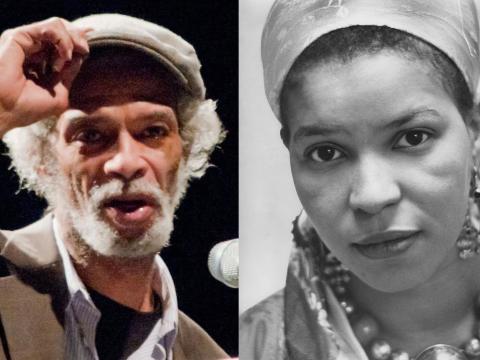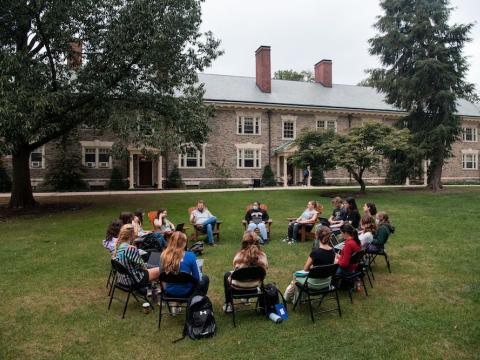This history course investigates the origins of income inequality in the contemporary world via intensive examination of the societies of early modern China and the Ottoman Empire.
-

-

This English course, which begins with Amiri Baraka and ends with Beyonce’s “Lemonade,” explores the Black Arts Movement of the 1960s and 1970s as an essential link to 21st-century Black culture.
-

The East Asian Languages and Cultures lecturer captured the lively culture and local cuisine of Muslim Food Street with his new photography exhibition on the VCAM exhibition wall.
-

The assistant professor of psychology was celebrated at the organization’s recent meeting for her outstanding contributions guiding students in the field.
-

This environmental studies course explores the biology of plants using case studies of economically important plants to illuminate themes like hybridization, monoculture, and adaptation.
-

The professor of physics and astronomy and director of the Koshland Integrated Natural Sciences Center talks about what it’s like to see her profession portrayed in a popular Netflix film.
-

The associate professor of English and creative writing program director discusses her latest novel, The Days of Afrekete, its Philadelphia setting, and Bi-Co alumnae characters.
-

The assistant professor of biology will receive $100,000 over two years to fund her lab’s research on how phytoplankton evade or stave off viral mortality.
-

The assistant professor of biology is the seventh recent Haverford professor to receive the award, which recognizes faculty at primarily undergraduate institutions who are outstanding educators and researchers with an unrestricted $75,000 grant.
-

The professor emeritus of classics died Dec. 3.
-

This environmental studies course examines environmental and social histories of Black and Asian foods and food cultures in the U.S.
-

This course explores the religious origins of the modern penitentiary and religious approaches to incarceration, abolition, and social justice.
-

In this fine arts course, students learn the basic techniques of Chinese calligraphy, its historical roots and development, and its importance in Chinese culture
-

Highlighting faculty professional activities, including conferences, exhibitions, performances, awards, and publications.
-

In this visual studies course students learn the craft of digital video production and post-production through the creation of short video projects focused on the genres of speculation, especially about the future of humans and human societies, as a creative framework.